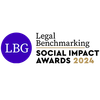FAQs: Patents
Discover more about patent law with our frequently asked questions. This resource has been created to answer your patent-related questions, providing clarity on the definition of patents, the application process, its protective scope, and the penalties associated with infringement.
Frequently Asked Questions #
What is a patent?
A patent is a type of intellectual property (IP) that protects the inventive concept behind a product. It may cover a new product, method or process, or a new use for a product. The invention need not be groundbreaking, and many patents cover very narrow technical advances — but it must be new, useful and inventive at the time that an application for a patent is filed. A patent can last up to 20 years on payment of annual ‘renewal’ fees.
How can I apply for a patent?
The patent application process involves preparing a written application and submitting it to the patent office in your country or, for multinational protection, to an international patent office. The application must include a detailed description of the invention, along with any drawings or diagrams and claims defining the scope of the invention.
Having a patent attorney during the application process is highly beneficial due to the complexity of patent law. They assist in drafting the application, ensuring clear and accurate presentation of your invention. A patent attorney also provides insights on grant likelihood and protects your intellectual property rights. Their expertise maximises the rewards of your innovation.
What can be patented?
To acquire a granted patent in the UK, you must be able to show that your idea is new (i.e. novel) and not obvious (i.e. inventive) before the UK Intellectual Property Office (UKIPO). A patent application requires an invention to be described in such a way that it can be implemented by a person skilled in that field. This does not mean that you need a working product but rather an idea of how the underlying concept will work and enough detail that a person skilled in your field could put it together based on your disclosure.
What does a patent allow me to do?
A granted patent allows you to exclude others from using, selling or importing your patented product or process.
What is the difference between a patent and a trade mark?
While a patent provides legal protection for an invention or process, safeguarding its exclusivity and preventing others from making, using, or selling the patented invention without permission, a trademark serves to protect a name, phrase, symbol, or design that uniquely identifies and distinguishes the origin of goods or services. Trademarks play a crucial role in branding by allowing consumers to associate particular qualities or attributes with a specific product or service provider. Both patents and trademarks are essential tools in safeguarding intellectual property rights, but they serve different purposes and cover distinct aspects of innovation and brand recognition.
Can I disclose and talk about my innovation?
If you have an innovation that you would like to protect with a patent, in order to satisfy the novelty criteria you must keep it secret until your application for protection has been filed. That is, you must not have disclosed your idea publicly. Public disclosure is not only limited to written publications, but can also extend to, for example, social media posts, performing or using your idea in public or even just discussing your idea in a public space.
Third parties may independently come up with the same innovations as you and can file for their own IP protection. The UK operates according to the first to file principle (as opposed to first to invent). In many cases time is of the essence!
How long does it take to get a patent?
The duration of the patent application process can vary widely. On average, it can take two to four years for a patent to be granted. However, the process could be longer depending on the complexity of the invention and the backlog at the patent office.
What is patent infringement?
Patent infringement occurs when a person or company makes, uses, sells, or imports a patented invention without the permission of the patent holder. The patent holder may sue for patent infringement and seek damages.
It’s important to note that infringement can occur even if the infringer is unaware of the patent. Therefore, anyone considering making, using, or selling something similar to a patented product should conduct thorough research to ensure there are no existing patents covering it. Doing so may protect them from costly litigation and other legal ramifications associated with infringing on another's patent.
What is a patent search and why is it important?
A patent search is a comprehensive search of existing patents to determine if an invention or idea has already been patented. It's an important step in the patent application process as it can save time and money by identifying potential conflicts early on.
Where can my innovations be protected?
A patent granted by the UKIPO grants you protection in the UK only. Filing a patent application in the UK gives rise to an internationally recognised “priority date”, whereby a further international application may benefit from the original UK filing date if filed within 12 months. International protection may be obtained by filing in foreign states directly or through centralised filing systems, e.g. with a Patent Corporation Treaty PCT (international) application or European patent application.
Can I sell or license my patent?
Yes, like any other property, a patent can be sold, licensed, or transferred. This can provide a source of income for the patent holder.
Furthermore, a license agreement can allow the patent holder to maintain control over their invention. When licensing or transferring patents, it's important to ensure that all necessary paperwork is completed and proper legal counsel is obtained. This helps to protect both parties involved in the transaction and brings clarity to the contractual arrangements.
What happens when a patent expires?
When a patent expires, the protection it offers comes to an end. This means that anyone can make, use, sell, or import the invention without infringing the patent. This can lead to increased competition, as others can utilise the previously patented invention. Once a patent expires, there is no way to renew or extend it. Therefore, it's important for inventors to make the most of the exclusivity period and capitalise on their invention before the patent runs out. Additionally, they should consider filing applications for additional patents that build upon their existing patented inventions to protect their intellectual property rights further.




















